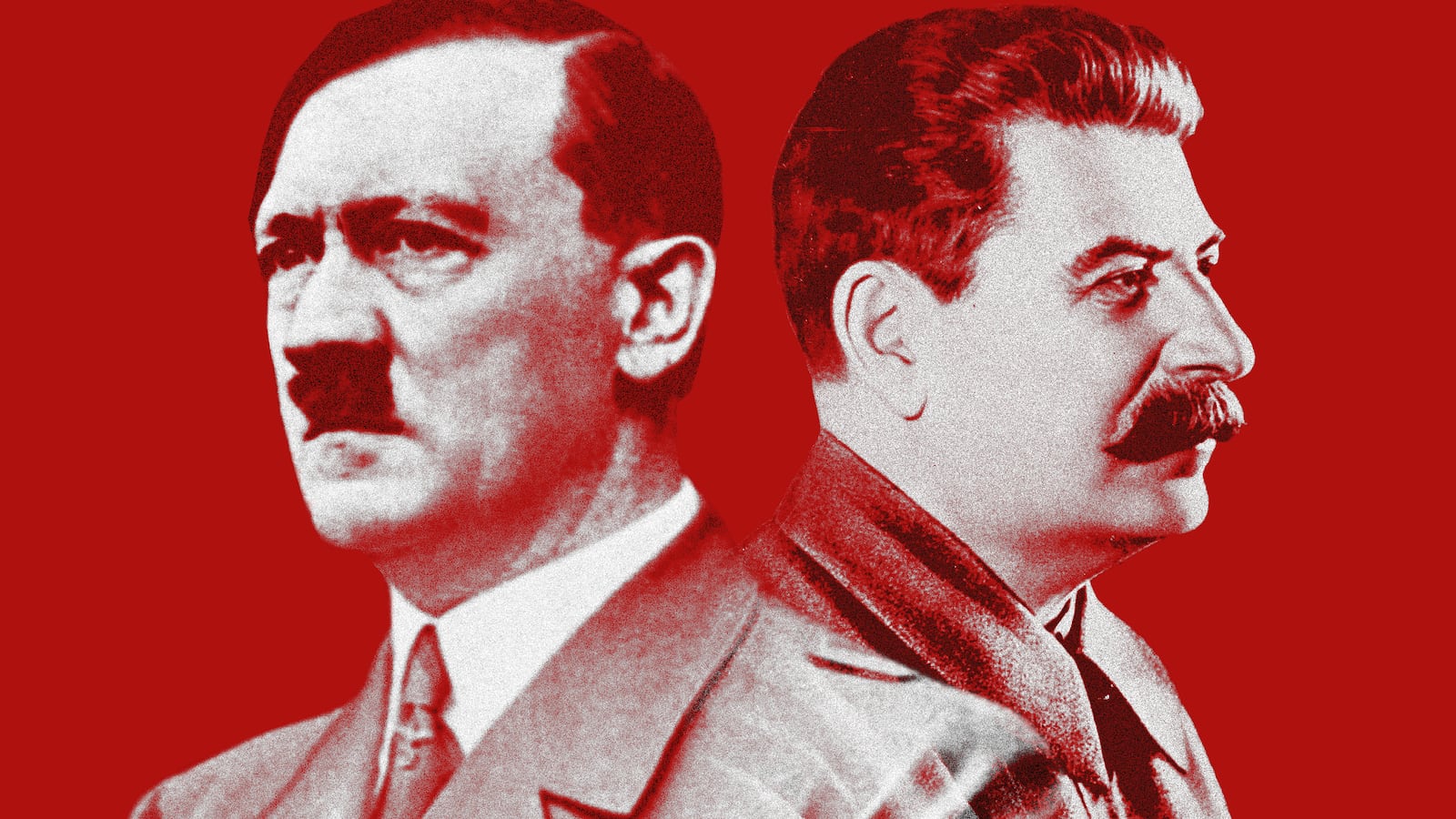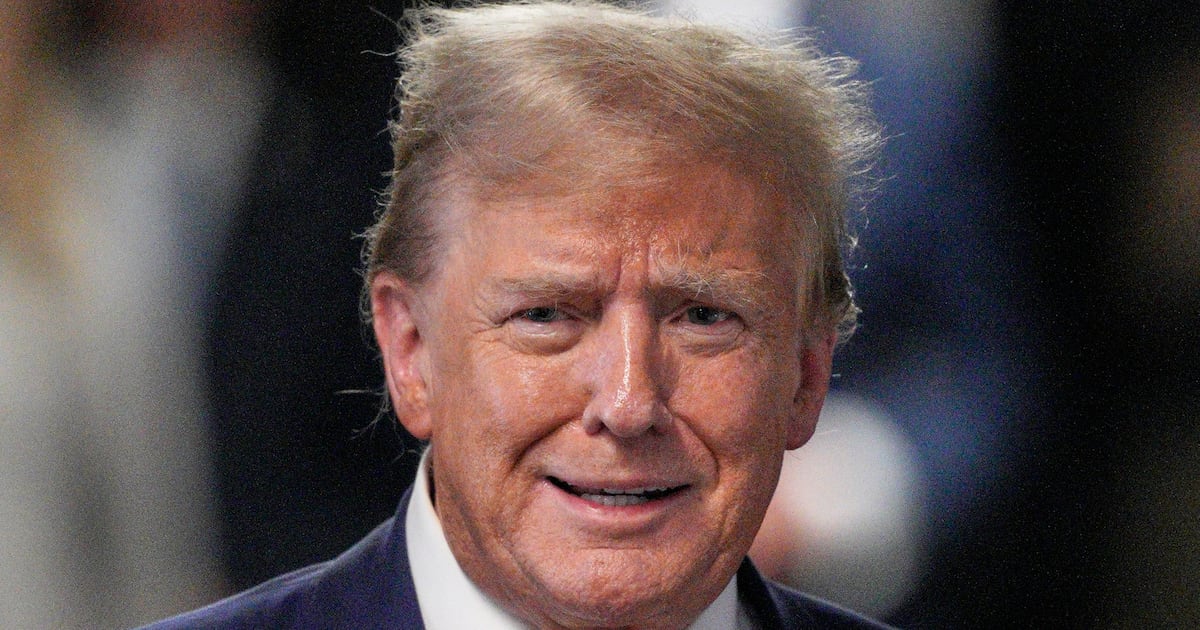MOSCOW—Early Thursday morning, the Russian capital woke to the sound of music played every May 9, the day this country marked as the end of World War II. “This is our Victory Day. The smell of gunpowder. … The joy, with tears in our eyes.”
Adolph Hitler’s invasion of the Soviet Union in 1941, “Operation Barbarossa,” was answered with ferocious resistance that, through long years of combat and sieges, cost tens of millions of lives. But most of Europe dates the beginning of the war to 1939, partly because of a nonaggression pact that Soviet dictator Joseph Stalin made with Hitler that opened the way for him to invade Poland. That was followed by the subjugation of France and the Battle of Britain. Stalin’s repression and purges meanwhile had killed millions of his own subjects in the 1930s.
Both men were tyrants who wrought carnage on a scale never before seen in modern times, and almost every Russian family lost someone during the fateful decades of their rule. So it is not surprising at all that Russia would outlaw anything resembling a “rehabilitation of Nazism.” But it is a sad, disturbing sign of resurgent autocracy under President Vladimir Putin that the crimes of Stalinism not only are ignored, the Soviet dictator who died in 1953 is increasingly revered as a hero. This, even though Putin himself is not a Stalin fan.
At noon on Thursday, a river of red Communist flags decorated with the hammer and sickle streamed across downtown Moscow and a giant banner with Stalin’s portrait floated above the demonstration.
The admiration is not for an ideology but for the strongman who claimed to represent it, and who drove the country to defeat the invader.
Putin has criticized Stalin’s repression in the 1930s, and has long said that communism doomed itself, forcing Russia to fall behind advanced countries, calling it “a blind alley, far away from the mainstream of the world’s civilization.” But walking around Moscow’s center on Friday, one would think that the Party and Stalin were back in power.
Thousands of modern communists gathered on Pushkin Square at noon. A young man in a black leather jacket and sneakers was carrying a portrait of Stalin, “the hero of our life,” he told The Daily Beast.
Russian Stalinists feel free to walk with their leader’s portraits around the capital on the country’s main holiday or even install Stalin’s monuments.
To mark Victory Day, Novosibirsk opened a monument to Stalin in spite of widespread public criticism. Novosibirsk was the headquarters for management of the Gulag in 1938, when the population in those grim and deadly prison camps reached 78,838 people.
After two decades of Putin’s rule, the efforts to restore Stalin’s cult make Russians believe that the victorious commander in chief during what’s called the Great Patriotic War was not a tyrant but an effective manager. And this year public respect for Stalin, along with nostalgia for the USSR, has reached a record level: 70 percent of Russians say that Stalin’s rule was good for the country, and Stalinists in the Putin era grow hostile to critics of their idol.
On the eve of the Victory Day, an award-winning St. Petersburg novelist, Yelena Chizhova was accused of “rehabilitation of Nazism” after saying in an article that both Hitler and Stalin were to blame for the German siege of Leningrad (as St. Petersburg was called at the time) from 1941 to 1944.
Chizhova‘ s article was about her latest book, which tells of the horrors her family had to survive during a Siege in which almost one million people died of hunger.
“I wrote that Stalin and Hitler were the worst dictators of the time,” Chizhova told The Daily Beast. “Stalin did not do anything to save stored food, so Leningrad was left without strategic reserve.”
Stalin, originally from Soviet Georgia, did not like the old royal city of St. Petersburg, even after it was renamed. “Famous authors, including Alexander Solzhenitsyn, Olga Berggolts, Lydia Chukovskaya have written about Stalin’s hate for Leningrad,” Chizhova added. “Thousands of people share the opinion I expressed in my article.”
Boris Vishnevsky, a municipal deputy in St.Petersburg, believes that the attack on Chizhova, a Jewish-Russian novelist, was “shameful” on the eve of the Victory Day. “Chizhova was right: Stalin and his management did fail to prevent the Leningrad Siege. That is common knowledge, which has nothing to do with justification of Nazism.”
In Putin’s Russia it is considered, at a minimum, bad form to discuss the Nazi-Soviet pact approved by Stalin in 1939. Stalin’s fans are not proud of a famous photograph of Stalin shaking hands with Hitler’s adviser, Joachim von Ribbentrop, who visited the USSR in August 1939. Millions of Russians have no idea, that on that visit Ribbentrop signed a neutrality accord with Stalin’s close associate Vyacheslav Molotov, the Chairman of the Council of People’s Commissars.
According to a 2017 poll conducted by the Levada Center, 38 percent of Russians don’t know what the Molotov-Ribbentrop Pact was about; that the document defined the borders of Soviet and Nazi “spheres of influence” in Poland, Lithuania, Estonia, Latvia and Finland.
“When it comes to public awareness of the pact, everything depends on what people learn at school, at university,” history professor Daniil Kotsyubinsky told The Daily Beast. “It depends on teachers and professors. My students know the Molotov-Ribbentrop Pact perfectly well.”
Kotsyubinsky believes the enthusiasm for Stalin in Putin’s Russia actually works against him. “By admiring Stalin, Russians show their mistrust in the current government,” he said. “Our society is irritated by the free-market authoritarian regime, so when they say they support Stalin, people demonstrate how much they dislike their life under Putin.”
“The Kremlin’s weak authoritarian power has been helping to develop Stalin’s cult to justify its own anti-democratic policy. So society reaches the conclusion there is no better alternative than a severe dictatorship.”
This year’s Victory Day parade displayed 13,000 soldiers and a record 138 weapon systems, including some ballistic missiles. The Kremlin’s Sputnik agency described one system that “carries ICBMs with multiple, independently targetable nuclear warheads and has a range of 11,000 km (6,800 miles).”
In the afternoon hundreds of thousands joined the “Immortal Regiment” march carrying portraits of their parents and grandparents, the WWII veterans and casualties.
The “Immortal Regiment” is the biggest civil patriotic movement of President Putin’s rule. But this year the Kremlin organizers asked the Communists not to bring images of Stalin to the event. Apparently there’s a realization that the public passion for the Stalin cult may be getting out of control. “They must have understood that the popularity of Stalin in Russia means nothing but a vote of censure for Putin,” Kotsyubinsky told The Daily Beast.








